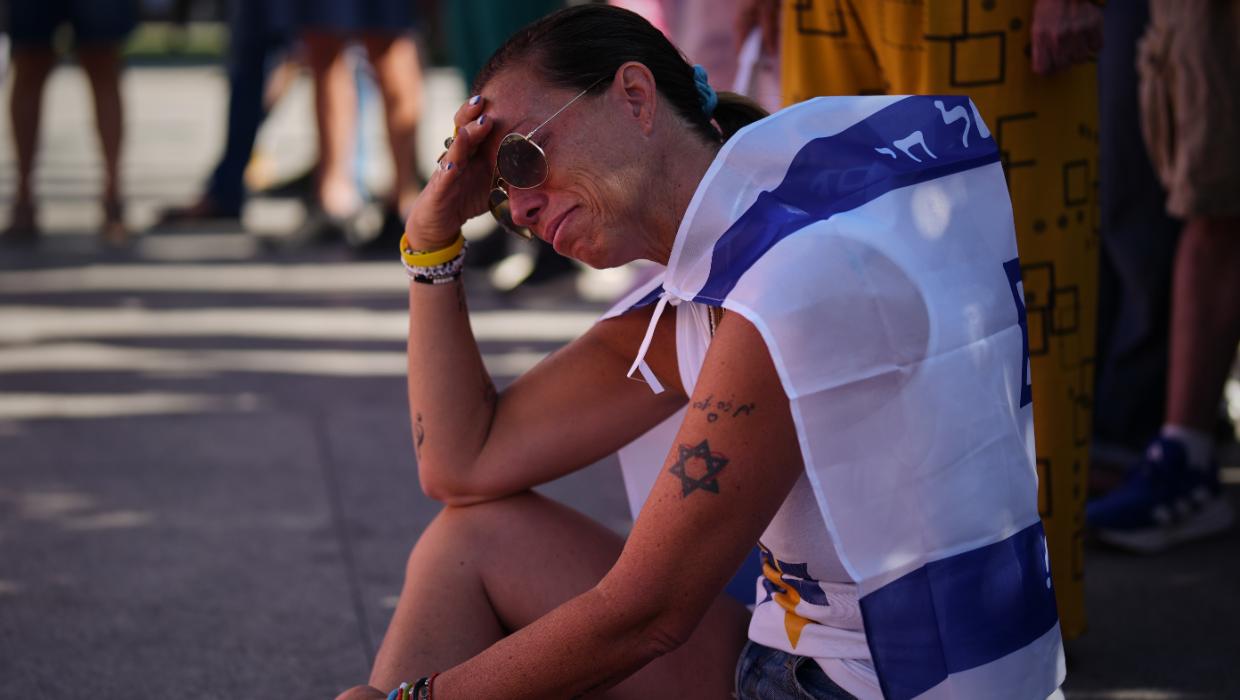Politics
Israel Faces Deep Divisions Two Years After October 7 Attacks

Two years after the October 7, 2021, attacks, Israel grapples with significant internal divisions. These splits in public opinion largely stem from discontent with Prime Minister Benjamin Netanyahu‘s leadership. Critics argue that his government has failed to secure a ceasefire agreement that could lead to the release of remaining hostages, further intensifying frustrations among the populace.
The aftermath of the attacks has been marked by a polarization of views regarding national security and political accountability. Many Israelis believe that Netanyahu’s approach has not only compromised safety but has also exacerbated the tensions within the nation. This sentiment is evident in various public demonstrations and opinion polls that reflect a growing demand for a change in leadership and strategy.
Public Sentiment Towards Leadership
The public’s growing discontent is reflected in recent surveys where a significant portion of the population has expressed a lack of confidence in Netanyahu’s capability to navigate the ongoing crisis. A poll conducted by the Israeli Institute of Democracy indicated that over 60% of respondents feel dissatisfied with the government’s handling of the situation. This dissatisfaction is primarily driven by concerns over the perceived inability to negotiate effectively for the hostages’ release and to establish a lasting peace.
Furthermore, the political landscape has become increasingly contentious. Opposition parties are capitalizing on these sentiments, calling for greater accountability from the government. Leaders from various factions have voiced their criticism, advocating for a change in strategy that prioritizes diplomatic negotiations over military action.
Impact on the Israeli Society
The divisions within Israel are not only political but also social. Families and communities are split on the best path forward, leading to heated debates and discussions in public spaces. The emotional toll of the attacks and the ongoing uncertainty has created an atmosphere of anxiety and frustration that permeates everyday life.
Many citizens are calling for unity among different factions, emphasizing the need for a collective effort to address the ongoing crisis. Community leaders have initiated dialogues aimed at bridging gaps between opposing views. These initiatives seek to foster understanding and collaboration in the face of adversity.
As the nation marks the two-year anniversary of the October 7 attacks, the question of how to move forward remains pressing. The impact of Netanyahu’s leadership continues to be a focal point of debate, with many advocating for a reevaluation of policies and approaches to ensure the safety and security of all Israelis.
The path ahead is uncertain, but the desire for change is palpable. With ongoing discussions about leadership and strategy, Israel stands at a crossroads, facing the challenge of healing its divisions while striving for a more secure future.
-

 World4 months ago
World4 months agoTest Your Knowledge: Take the Herald’s Afternoon Quiz Today
-

 Sports4 months ago
Sports4 months agoPM Faces Backlash from Fans During Netball Trophy Ceremony
-

 Lifestyle4 months ago
Lifestyle4 months agoDunedin Designers Win Top Award at Hokonui Fashion Event
-

 Entertainment5 months ago
Entertainment5 months agoExperience the Excitement of ‘Chief of War’ in Oʻahu
-

 Sports4 months ago
Sports4 months agoLiam Lawson Launches New Era for Racing Bulls with Strong Start
-

 World5 months ago
World5 months agoCoalition Forms to Preserve Māori Wards in Hawke’s Bay
-

 Health4 months ago
Health4 months agoWalking Faster Offers Major Health Benefits for Older Adults
-

 Lifestyle4 months ago
Lifestyle4 months agoDisney Fan Reveals Dress Code Tips for Park Visitors
-

 Politics4 months ago
Politics4 months agoScots Rally with Humor and Music to Protest Trump’s Visit
-

 Top Stories5 months ago
Top Stories5 months agoUK and India Finalize Trade Deal to Boost Economic Ties
-

 Health2 months ago
Health2 months agoRadio Host Jay-Jay Feeney’s Partner Secures Visa to Stay in NZ
-

 World5 months ago
World5 months agoHuntly Begins Water Pipe Flushing to Resolve Brown Water Issue









